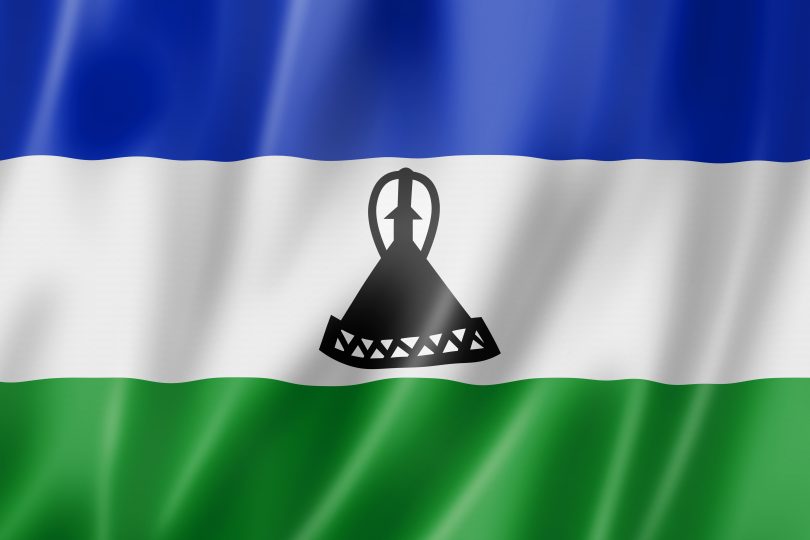Africa’s growing Green Rush has seen a surge in changing cannabis regulation, but how much of it is for the good of the people?
Lesotho was the first African country to legalize the cultivation of medical cannabis for exportation, but why aren’t they offering it to their own people? And who is profiting from all this weed?
A little about Lesotho
Lesotho – officially the Kingdom of Lesotho – holds the designation of being one of only three sovereign countries in the world to be enclaved within another country. Along with Vatican City and San Marino (both of which are ensconced within Italy), Lesotho is completely surrounded by South Africa, towards the East side of the country, close to Durban. Its lands encompass just under 12,000 square miles and its inhabitants number just over two million.
It declared independence from the United Kingdom in 1966, and previous to that was the British Crown Colony, Basutoland. The current government is a constitutional monarchy which is run by the prime minister (currently Tom Thabane), while King Letsie III sits in a ceremonial position which is barred from participating in the political functioning of the country. Lesotho is almost 100% made up of the Basotho ethnic group, with Sesotho as the official language, along with English, Zulu and Xhosa.
The economy of Lesotho is based on farming, livestock, and mining with diamonds being a prominent natural resource, along with water. Lesotho is a generally poor country, and as of 2017, 57% of its population was living below poverty, and approximately 50% was unemployed. Lesotho also has a massive issue with HIV, with an enormous 23% of their population infected with the virus.
Life expectancy in Lesotho is rather low with the average woman living to 56, and the average man living to 52. To say that the people of Lesotho are living well would be quite an overstatement, in fact, it is a country that very much could use some help.
Use the sign-up form below to subscribe to the Medical Cannabis Business Newsletter
Enter Cannabis
In 2017, The government of Lesotho made a very big move which has been reverberating around Africa ever since, and which set off a flurry of changing regulation in an effort to divert the growing cannabis flow in a different direction. It decided to legalize the cultivation of medical marijuana, and to issue licenses for growing it. By 2018, several different Canadian companies were making investments in, or acquiring, local Lesotho weed-growing operations worth tens of millions of dollars.
As 80% of the population subsists on farming, this influx of business is massive to Lesotho’s economy and people. In the past, agriculture had been an issue because of droughts and the mountainous geography of the country, a problem for a country that depends on it. And the influx of cannabis as a crop has helped alleviate a lot of farming issues as it grows perfectly in that geography.
But this doesn’t mean that the average resident can grow cannabis for themselves. That’s still illegal. The Drugs of Abuse Act of 2008 allows the Ministry of Health to give out licenses for cultivating cannabis, but does not permit the standard citizen to grow it legally. Even with the legislation, growing it at all wasn’t really a thing until a decade later when cultivating cannabis became the new big global investment game.
In the beginning, the licences were given out for free which gave locals the ability to use them. Now, the government charges ~ $37,000 for licenses which prices out standard residents. Even though many standard residents have their own illegal grow operations, they can only sell on the black market and cannot profit from the legal medicinal cannabis boom, while facing jail time if caught.
How it helps
Regardless of whether Lesotho farmers will be able to generate the big bucks off their farming work, they are at least able to work. New companies are coming in every day to build multi-million dollar operations like MG Health, a UK company that spent $23 million on a facility and is employing 380 locals with hopes of employing thousands more. As one of the biggest commercial producers in Lesotho, MG Health harvests a low THC strain to comply with foreign regulation, as well as producing CBD oil. As of right now, most products are sold to South Africa, but they are working on breaking into markets in Europe, Australia, and the Middle East as well.
Africa’s Green Rush and the Mad Dash to Update Cannabis Regulation
Their idea is that as regulations loosen globally, the need for low cost production will increase with countries like Lesotho being key for such cultivation and production. According to MG Health, they produce cannabis at $.93/gram, cheaper than the $1+ seen elsewhere according to MG. Whether that is true, or how much it could change in the near future as more low-income countries take the bait and join in, remains a question mark for now.
Cannabis law in Lesotho
So, lets back up for a second. It’s obviously legal to grow cannabis in Lesotho commercially if one has the correct licensing, and we covered that without the correct licensing it’s illegal to grow it. But what are the general cannabis laws?
According to the Drugs of Abuse Act of 2008 it is illegal to have or use cannabis at all, however the laws are rarely upheld, and cannabis has been a huge part of Lesotho culture and history. So, its okay if you have and smoke it, but its not so okay if you sell it. Probably because of it getting in the way of the new weed economy. Selling, distributing, transporting, and delivering all carry a sentence of 20 years or a massive fine (or both). This is still typically more enforced when crossing the border to South Africa, and less cared about within Lesotho itself where it doesn’t mess with the burgeoning international cannabis trade.
Lesotho is a country that does not yet differentiate between parts of the cannabis plant, so CBD, or cannabidiol, the cannabis cannabinoid without psychoactive properties which has been found through medical research to have an abundance of possible therapeutic benefits (and which companies in Lesotho already produce and sell), is not actually legal for residents. Nor is the production of hemp, funny enough, even though cannabis can be grown medically for exportation.
It doesn’t quite match up
The government of Lesotho has made no bones about its desire to make money off the growing cannabis industry. A spokesman for Prime Minister Thabane’s office told Prohibition Partners “We want to be known internationally as the best cultivator of medical grade cannabis anywhere in the world. We are proud of becoming the first African nation to produce cannabis legally, and we can only see this improving the lives and the health of the people of our great country.”
It is estimated by Prohibition Partners that the legal weed industry of Africa could be worth over $7 billion by 2023, and this is known by African leaders who are turning ship left and right to get in the game and claim it. While it has provided much needed jobs, it would be remiss to leave out how much the locals are being cut out of the operation. It’s like, having a job at a McDonald’s vs owning a franchise. One makes minimum wage and has no power, and the other makes big profits and runs the show.
South Africa Introduces Some of the Most Lax Laws on Cannabis Yet
Allowing the people of Lesotho to make big profits would be the better way to improve the economy, and raise the standard of living for residents who desperately need it. Doling out jobs at McDonald’s is helpful when jobs are needed, but it undermines the idea that the average citizen is taking a backseat to investors from Canada, Europe, and the US. The real cash is going out of the country, or to the government in taxes. Many residents are happy for the work, many more are sore at being pushed out of the real business of it, and left with the grunt work, just because they couldn’t afford the buy-in cost.
It doesn’t say much for the governance of the country, or the motivations of those in power, that these medicines that it so wants the world to have access to, it doesn’t provide to its citizens. Perhaps this is a technicality since Lesotho doesn’t really enforce its use laws anyway, but if the idea is creating great medicines, wouldn’t those who run the government want their country of sick, dying people to have them?
Whether the government will use this green rush income to better fund social programs and build infrastructure in the country is a big question. If the money is spent right, it could do wonders for the poor nation, if not, then it’s just another African country being exploited by its own leaders.
Conclusion
I expect this new trend will continue. African countries desperately in need of income, and fraught with ‘mismanagement issues’, quickly changing their cannabis regulation in a race to sell out their land and operations to foreign investors intent on getting rich in today’s weed economy. And while I’m glad that it brings jobs to these countries, the real potential of what it could bring – a means to bring these African nations out of poverty – is very much being lost.
I mean, the people of Lesotho aren’t even being allowed to benefit from the product they help grow, which is being sold to make other people healthy and/or rich. It’s not a new story, but it’s sad nonetheless. The potential of good that could come from this green rush is so massive, and yet the reality of how it will impact the citizens of Lesotho, is likely not nearly as glowing.
Thanks for stopping by CBDtesters.co, your one-stop-shop for all things CBD, hemp, and legal-weed related. Come back frequently and make sure to subscribe to the Medical Cannabis Business Newsletter to stay up-to-date.







